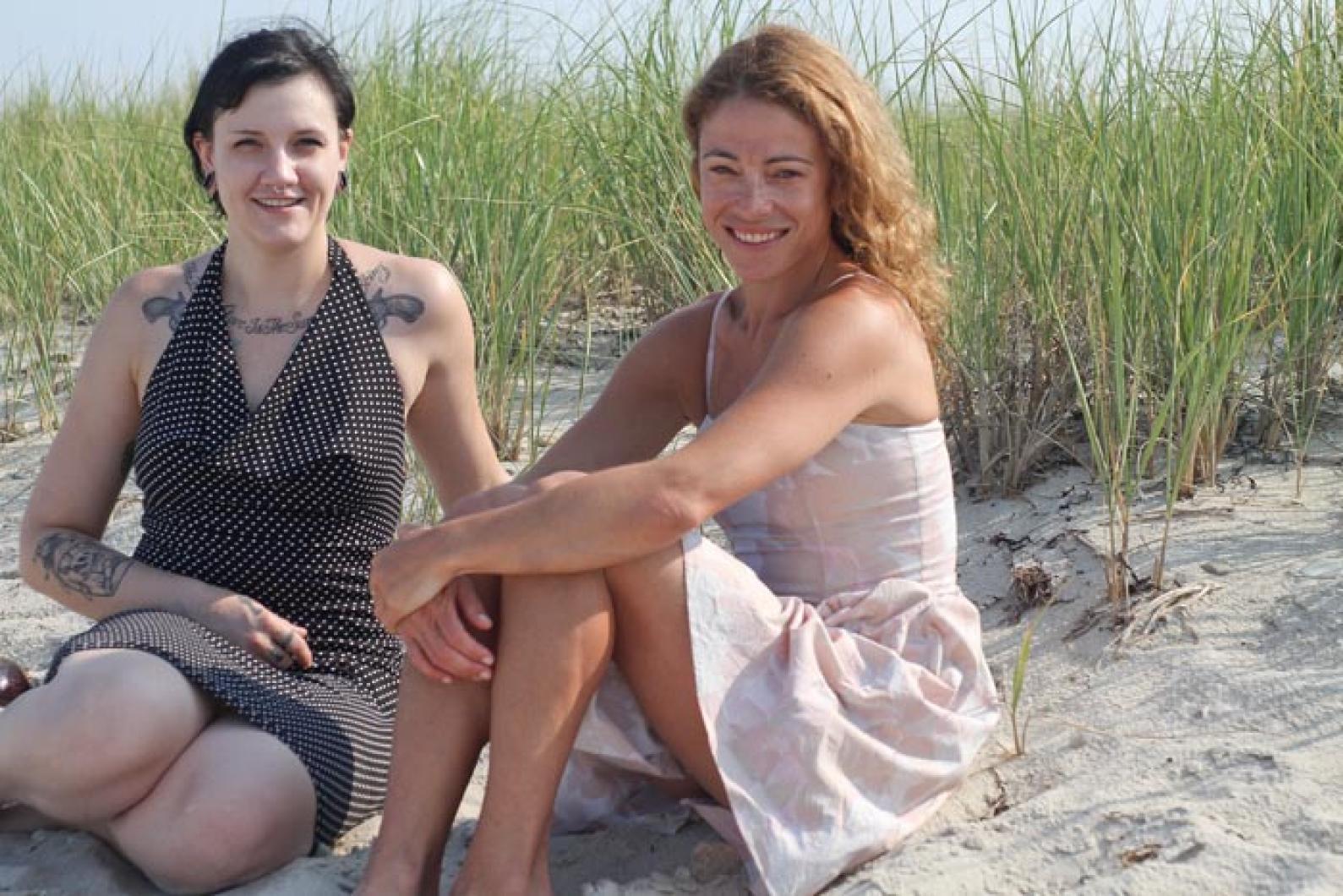Robynn Murray served in the armed forces in Iraq and was featured on the cover of Army Magazine as an inspiration to women in the army. She now wants nothing to do with selling the military to other women. While in Iraq she was shot at, pointed her gun at families, and witnessed death and destruction. Upon returning home from the war she had to deal with the slow, messy process of trying to cope with her experiences in the army.
The movie Poster Girl, featuring Robynn Murray and directed by Sara Nesson, screened this past Tuesday night at the Union Chapel in Oak Bluffs as part of the Tuesday film series put on by the Martha’s Vineyard Film Society. The movie was nominated this year for an Academy Award in the short films category, and will air on HBO in November. The movie documents the experience of Ms. Murray living with Post Traumatic Stress Disorder (PTSD) and her attempt to get treatment from her local Veterans Affairs office.
“A lot of [the film] is just day-to-day,” Ms. Murray said on Tuesday in an interview with the Gazette. “Sara, I think, brilliantly captured what PTSD looks like every day, not what people say it is, not the definition, but how it really affected me... it has me talking about wanting to kill myself, it has me on 14 different medicines, it has me busting a hole through a wall because I’m angry.”
Ms. Murray was stationed in Baghdad from 2004 to 2005 and then in the Horn of Africa in 2006, after which she left the army because of a hip injury. When she returned home and realized the extent of her trauma, both physically and emotionally, she sought help. But the Veterans Affairs office was a bureaucratic nightmare. It took her years to get them even to acknowledge that she was “80 per cent disabled” and thus eligible for disability money.
It is this journey that director Sara Nesson vividly captured in her film.
“I wanted to show what it was like to go through that process [of applying to the Veterans Affairs office for help],” said Ms. Nesson. “And part of the vérité style of filmmaking is you follow someone as they are actually experiencing something rather than talking about it afterwards.”
The two women first met in 2007 when, to cope with her trauma, Ms. Murray attended a workshop held on Martha’s Vineyard called the Combat Paper Workshop, a program initiated by Drew Cameron and Drew Matott.
The Combat Paper Workshop is a retreat for veterans of the Iraq War. This one was held at a private residence in Chilmark and 27 veterans participated. Many of the veterans were already a part of the Warrior Writers Project, a group that brings veterans together to express themselves through art-making. At the workshop on the Vineyard veterans cut up their uniforms, first making paper pulp out of them and then making art with the paper they had created. The act of destroying their uniforms and bringing them back to life as art had a strong psychological effect on Ms. Murray.
“[Making paper out of your uniform] is incredibly helpful with healing because you get to take [your experience] and you own it,” she said. “You know, a lot of times when I really wasn’t doing well it was because I kept being a victim to my own experiences over and over again. And getting involved with the Combat Paper Project and with writing, it made it so you know I owned my own process. I owned my own healing. It was no longer something that just happened to me. I owned it for better or for worse.”
A second film by Ms. Nesson, called Iraq, Paper, Scissors, was also shown on Tuesday. This film is based on Ms. Nesson’s original idea to make a feature length movie out of the experience of several veterans who participated in the Combat Paper Workshop. When it came to the editing stage, however, she realized that her footage of Ms. Murray was profound enough to warrant its own film. Ms. Nesson is still in the process of editing Iraq, Paper, Scissors.
After the screenings on Tuesday night, Ms. Murray and Ms. Nesson held a question and answer session with the audience. Ms. Murray emphasized that the art-making did not make the trauma go away, but rather it changed her relationship to it. The film makes it clear how Ms. Murray became disenchanted with the military and the war. She also has many tattoos all over her body that tell the story of her experience of the war. But tattooed across her chest, she said, in front of her heart and next to two tattoos of pistols, are the words, “The love you give is the sum of your being.”




Comments
Comment policy »